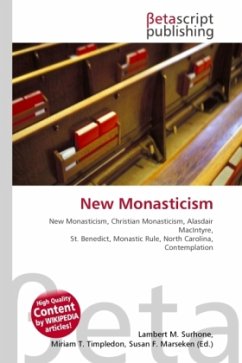
It could have been bigger, but its residents like it as is
Small Town Libraries in Moore County, North Carolina
Versandkostenfrei!
Versandfertig in 6-10 Tagen
79,00 €
inkl. MwSt.

PAYBACK Punkte
0 °P sammeln!
Large, urban institutions are well represented inAmerican public library history, butthe stories of libraries in small towns or in ruralareas are not as well represented. During thetwentieth century, local citizens in six small MooreCounty, North Carolina towns ( small heredefined as towns having less than five thousandresidents) established and maintained localpublic libraries. Some of the libraries failed overtime, some succeeded, but all of them wentthrough a process of finding their place in theircommunity and governmental environments,environments that were themselves changing with thetim...
Large, urban institutions are well represented in
American public library history, butthe stories of libraries in small towns or in rural
areas are not as well represented. During the
twentieth century, local citizens in six small Moore
County, North Carolina towns ( small here
defined as towns having less than five thousand
residents) established and maintained local
public libraries. Some of the libraries failed over
time, some succeeded, but all of them went
through a process of finding their place in their
community and governmental environments,
environments that were themselves changing with the
times. Using newspaper articles,
augmented with interviews and direct observation,
this is a study of those libraries and the
people who created them in the context of their
times and circumstances, and in the context
of how they were and are viewed by the profession of
librarianship.
American public library history, butthe stories of libraries in small towns or in rural
areas are not as well represented. During the
twentieth century, local citizens in six small Moore
County, North Carolina towns ( small here
defined as towns having less than five thousand
residents) established and maintained local
public libraries. Some of the libraries failed over
time, some succeeded, but all of them went
through a process of finding their place in their
community and governmental environments,
environments that were themselves changing with the
times. Using newspaper articles,
augmented with interviews and direct observation,
this is a study of those libraries and the
people who created them in the context of their
times and circumstances, and in the context
of how they were and are viewed by the profession of
librarianship.












